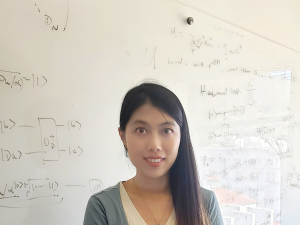Math Beyond Bars
Matt Junge, a newly hired research assistant professor, taught at the Dan River Prison and Work Farm during the 2016 Autumn semester. The course in college algebra focused on solving polynomial, exponential and logarithmic equations. Students received college credit at the University of North Carolina via the William and Ida Friday Center for Continuing Education.
Class met three days a week for three hours at a time. Students put in a lot of work to keep up with the quick pace. They were especially good at pooling together to help one another. Moreover, class time was a constant stream of active participation---much more than Matt typically sees in a math class. This is even more impressive considering the obstacles faced by inmates. Movement through the prison is restricted, so it is often impossible to get any help outside of the classroom. They can only study in loud, chaotic dormitories. Also, many of the students work full-time jobs alongside their studies.
Matt says the experience was very positive, ``Command of math is a hurdle everyone must clear to get into higher education. Learning math for offenders is so high stakes, and they approach it with a unique vigor." In regards to challenges he notes, ``The background students come in with is all over the place. Some have been out of the classroom for thirty years, and nearly everyone struggled with math when first exposed to it." This makes it challenging to teach at the right pace and level of detail.
It was during graduate school that Matt first got involved with prison education. He designed and taught a college math curriculum at the Washington Women's Correctional Center for the Freedom Education Project Puget Sound. This led to him teaching the first ever college accredited math course for incarcerated women in Washington. Matt started out of a desire to reach a more diverse population. ``I want to change their perception of math, both for their future success and for the potential impact it will have when they reenter their communities."
The program always needs mathematicians, both to run the classes and tutor in a study center. Professors, graduate students and undergraduates who are interested should contact Raphael Ginsberg at trapido@email.unc.edu.




